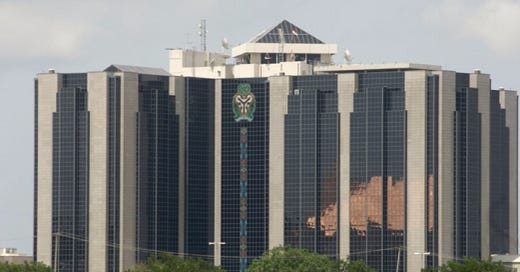Nigeria’s external debt reaches N66.14 trillion in Q3 2024 – CBN
By Israel Ojoko
The Central Bank of Nigeria (CBN) has disclosed that the country’s external debt reached N66.14 trillion (equivalent to $43.03 billion) in the third quarter of 2024, amounting to 23.14% of Nigeria’s GDP.
This disclosure was part of the Fourth Quarter 2024 Economic Report, published on Monday by the apex bank.
The latest figure represents a 0.30% increase from the $42.90 billion recorded in Q2 2024, highlighting a consistent upward trend in Nigeria’s borrowing activity.
On a year-on-year (YoY) basis, Nigeria’s external debt grew by 3.40%, rising from $41.59 billion reported in Q3 2023. This steady increase reflects the nation’s reliance on foreign loans to address fiscal challenges and fund development projects.
Breakdown of Nigeria’s external debt stock
A detailed analysis of the external debt stock reveals diverse sources of borrowing.
Multilateral Loans: These include financing from institutions such as the World Bank Group, International Monetary Fund (IMF), and African Development Bank Group, collectively amounting to $21.77 billion, which accounts for 50.60% of the total debt stock.
Commercial Loans: Primarily from Eurobonds, this segment totaled $15.12 billion (representing 35.14%).
Bilateral Loans: Nigeria sourced $5.81 billion (13.50%).
Syndicated Loans: The balance of $0.33 billion (0.76%) originated from syndicated loans through the African Finance Corporation.
Debt servicing and payment analysis
By the end of September 2024, Nigeria’s external debt service payments stood at $1.34 billion, comprising principal and interest obligations.
Principal repayments, which made up 53.73% of debt service payments, amounted to $0.72 billion; While interest payments, amounted to $0.62 billion, with interest constituting 46.27% of the total payments.
A closer look at interest payments shows Commercial Borrowings accounting for the largest share, $0.44 billion (70.96%).
Multilateral Institutions contributed $0.12 billion (19.35%); While Bilateral Loans represented the remaining balance.
What this means
The consistent growth in external debt indicates Nigeria’s increasing reliance on foreign financing, a trend driven by fiscal constraints and development needs.
While multilateral loans remain the dominant source of funding, the significant share of commercial borrowings raises questions about long-term sustainability and repayment capacity.
As external debt servicing continues to rise, Nigeria’s economic stakeholders are faced with balancing borrowing strategies against the challenges of managing rising debt obligations.
The report’s findings highlight the need for fiscal discipline and the prioritization of investments that drive economic growth.
Experts believe that a combination of higher oil revenues, improved tax collection, and strategic debt restructuring could help sustain lower debt service payments in the coming months.
Israel Ojoko is a dynamic journalist renowned for his in-depth coverage and insightful analysis on a diverse range of topics. With a keen eye for detail and a passion for storytelling, Israel has penned impactful articles on the economy, political developments, fintech, and cybersecurity, among many others. His dedication to uncovering the multifaceted narratives has established him as a trusted voice and influential figure in contemporary journalism.
Nairametrics



